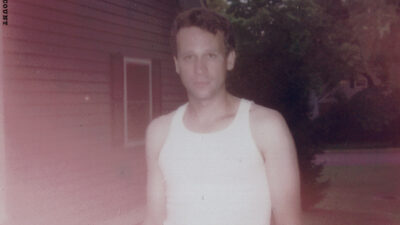Genre: Neo-Soul
Favorite Tracks: “Nectar,” “Bloom,” “Floating,” “Mama,” “Nani’s Interlude,” “Petal”
There you are, sitting in your seat, palms sweating. Around the room all other 13-year-old cohorts’ eyes are darting around in horrified anticipation. It’s coming. The day was imminent since you signed your name on the syllabus.
Today is the day you watch someone give birth in seventh grade health.
Your old crone of a teacher pushes the TV on wheels to the center of the room and makes sure to skip to the deemed “good stuff,” although something peculiar happens between the no-doubt tearing of the person’s taint and the animalistic screams. Unexpectedly, you find yourself. . . awe stricken. Of course, the status the body must be put under to show its capability is unfortunate, but that does not negate its credibility. Our physical bodies are able to process so much—both positive and negative. We have an amazing bandwidth on a corporeal level just as much as mental or emotional. The new kid of soul, Raveena, adheres to that on her debut LUCID.
At 25 years old, New York-based singer Raveena has been slowly inching her way out of the chrysalis and into full emergence since 2017. Her signature use of pastel colors, overexposed light, and a throughline of feminine energy have been featured on COLORS and the Camp Flognaw stage. Yet, it was not until the recent release of her debut album that fans have really been able to get a deeper perception of who the artist is.
With the release of tracks like “Mama” and “Temptation,” Raveena has been incredibly vocal about growing up as a child of immigrants and as a queer woman of color. In being transparent with her fans, she has also been able to streamline a pretty darn accessible narrative. Like other albums, LUCID, reflects on past loves, trauma, and self-worth, but with a refreshing added element: the physical stamina endured from the aforementioned reflections.
On “Stronger,” Raveena writes “Almost sacrificial how I’m laying here trembling / A call, a call, from heaven.” In one line, the singer manages to articulate a visceral response to the emotional abuse she experienced, not only comparing herself to a lamb for the slaughter but talking about her whole body trembling at the mere thought of someone. The last verse of the track furthers her physicality with “Don’t talk too soon / I ain’t dead yet but I am holy as the sunrise, clear as the water. I was so naive.” On the one hand, her nonchalant statement of “I’m not dead” represents the fact that her emotional capability is still stronger, yet on the other, she is pointedly saying that her body has endured the worst and is still connected to major elements like the sun and water.
The tangible efforts of Raveena’s body do not just relate to resilience but also her dissolution. “Nani’s Interlude” is a 1:44 exposition on embracing life, which is not limited to the comfortability of our imminent disintegration. “…Death is coming near / Because it will happen one day, we don’t know what day and how it will happen,” then “You never know / We should be thankful for every moment and spend more happy day / No regret should be there / You will love this life more…” While plenty of other albums as of late have included poignant interludes, LUCID uses this as an example of a truly seamless blend from narration to song that completely boosts the focus of the music. Raveena has inherited not just trauma from past generations, but a love and wisdom that she effortlessly abides by.
The following track, “Petal,” feels like Raveena’s response as well as her summation. The song itself features very simple lyrics that are poignant in their assertion rather than a metaphor of what they’re trying to relay. “When I feel like a petal, floating in the breeze / When I feel like a speck inside an endless feed / I am weightless under sunny sun, I am weightless knowing death is soon to come.” While on the surface, Raveena’s words seem morbid and forthright, they are actually meant to project honesty and serenity. We’re human, and no matter how empty or miniscule we feel, we’re a speck in an unimaginable world. Of course our or Raveena’s feelings of depression are valid. Yet in times of trouble, Raveena reminds herself that her body, the most sacred vessel, gets to experience nature and all this glorious world has to offer. Moreover, her body is an extension of the earth that only has a small while to work in tandem with it before being absorbed entirely.
A common critique for LUCID has been that all songs sound the same. While her composition and ambience can feel hyperbolic, it’s more of a tool to placate the listener. If someone is going to sing for over an hour about how her body is like various forms of nature, don’t you think some actual goddamn nature sounds wouldn’t hurt? Raveena should be commended on her courageous effort to experiment with such a cemented genre like soul—to not only fabricate a sound that has a foot in both the old and new, she also effortlessly blends in facets of the Southern Asian diaspora. Is LUCID absolutely groundbreaking? No. Yet that does not negate the fact that it presents itself with complete visibility and sincerity; Raveena’s fresh take on optimism is shaped by music that welcomes all with open arms, and to deny that puts your character into question, not hers.
















Comments